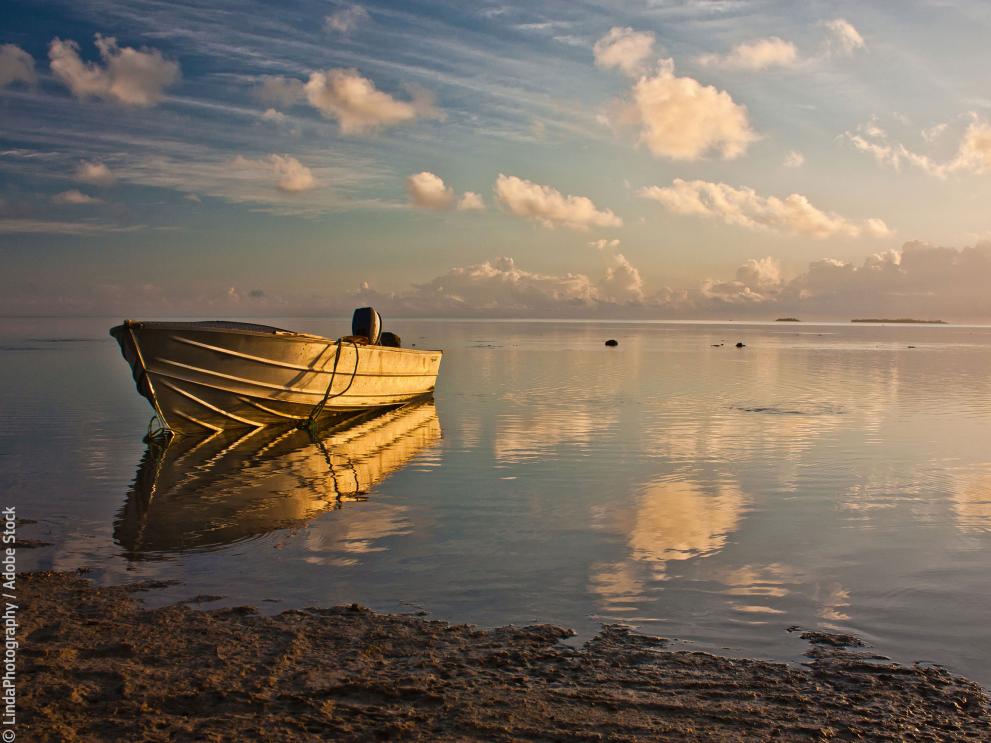
Today, the European Union and the Cook Islands agreed to continue their successful fisheries partnership as part of the sustainable fisheries partnership agreement (SFPA), for a duration of three years. The agreement allows EU fishing vessels operating in the Western and Central Pacific Ocean to continue fishing in the Cook Islands fishing grounds.
Virginijus Sinkevičius, Commissioner for Environment, Oceans and Fisheries, said:
With the renewal of this Fisheries Protocol, European Union vessels will be able to continue fishing one of the healthiest tropical tuna stocks. We are particularly proud to contribute, through our sectoral support, to the development of the Cook Islands’ fisheries sector - a Small Island Developing State that has been often praised for its effective and responsible fisheries management policies. This is how the EU’s sustainable fisheries partnership agreements work in practice.
In the framework of the new protocol, the EU and ship owners will contribute with a total up to approximately EUR 4 million (NZD 6.8 million) for the next three years, of which EUR 1 million (NZD 1.7 million) to support the Cook Islands’ initiatives within the sectoral fisheries and maritime policy. Overall, next to improvements in the fishing sector, the revenue obtained from this SFPA has previously allowed the Cook Islands government to improve its social welfare system.
The Cook Islands, a remote archipelagic state comprising 15 volcanic islands and atolls located in the Western and Central Pacific Ocean (WCPO), have an exclusive economic zone of 1.8 million km2, the fifth largest in the South Pacific region. Since 2021, the tropical tuna purse seine fishery within the Cook Islands fishing grounds has seen a rapid increase and became a strategic area for the operations of the Union purse seine fleet in the WCPO.
Tropical tuna species management such as skipjack tuna, yellowfin tuna and bigeye tuna in the WCPO falls under the responsibility of the Western and Central Pacific Tuna Commission (WCPFC). The new protocol will allow the four Union purse seiners operating in this vast ocean to fish up to 100 fishing days annually within the Cook Islands waters, with the possibility for the ship-owners to buy additional 110 days.
The amount of fishing effort to be exerted by the Union fleet within the Cook Islands has been negotiated according to the conservation management measures adopted by the WCPFC, underpinned by the work of the fisheries scientists of the Pacific Community (SPC), the organisation which provides scientific advice to WCPFC. Each year, purse seiners in the WCPO fish for more than 50,000 days, providing for more than half of the global tuna catch. In the Cook Islands itself, the maximum number of days is of 1,250, therefore the EU fishing effort, even if maximised, will be far below this limit.
Once the Fisheries Protocol is operational, the parties are committed to monitor the fishing activities of the Union vessels in the Cook Islands on a regular basis. The authorities of the Cook Islands in particular will ensure that the fishing days made available to the Union vessels are strictly monitored, to ensure that the Cook Island’s effort limits declared under the WCPFC are duly respected. Fisheries monitoring, control and surveillance capabilities of the Cook Islands have been greatly enhanced with the opening in 2018 of a new Ocean Monitoring Centre at the Ministry of Marine Resources in Avarua, capital of the Cook Islands, funded under the sectoral fisheries support component of the former Fisheries Protocol with the EU.
As mentioned above, the Fisheries Protocol includes a specific envelope of annual EUR 350 000 for the development of the Cook Islands fisheries and maritime sector. Interventions to be funded under this component are discussed and agreed by both parties within the Joint Committee, which has been set up to monitor the application of both the SFPA and its protocol. The implementation of the sectoral support programme has been so far a success, allowing the Cook Islands during the last four years to reinforce the capacity of the their Ministry of Marine Resources to implement sustainable fisheries policies, specifically to enhance the livelihoods of artisanal fishermen, and to reinforce the monitoring, control and surveillance capabilities. It has also allowed improving food safety standards for local seafood consumption and for exports.
Background
The first Fisheries Protocol between the European Union and the Cook Islands was adopted in 2016 and it was extended last year for an additional year, due to the constraints imposed by the sanitary crisis.
Despite its modest magnitude, Cook Islands Protocol is a strategic one for the European Union, since it is currently the only active agreement in the Western and Central Pacific Ocean. Tuna stocks in the Western and Central Pacific Ocean are among the healthiest tuna stocks in the world, providing more than half of the global tuna catch. According to scientific assessments, all three tropical tuna stocks exploited by purse seiners in the WCPO, namely skipjack tuna, yellowfin tuna and bigeye tuna, are considered in a healthy status and are currently exploited in a sustainable way.
Tuna is a key resource for the social and economic well-being of Pacific nations and their people. Revenue obtained from this agreement has allowed the Cook Islands government to raise its social welfare system.
In line with the EU's common fisheries policy, overall the SFPA between the EU and the Cook Islands has allowed both parties during the past five years to engage in a dialogue on fisheries governance and to encourage sustainable and responsible fishing. It has also reinforced their cooperation in the fight against illegal, unreported and unregulated fishing.
The new protocol will provisionally enter into force once relevant adoption procedures will be completed by both parties.
Details
- Publication date
- 28 July 2021
- Author
- Directorate-General for Maritime Affairs and Fisheries
